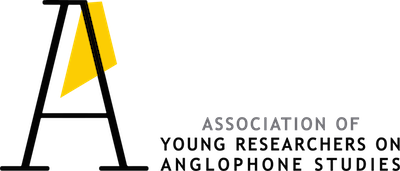Advanced Issues Concerning the Lemmatisation of the Old English Graded Adverbs (pp. 9-39)
Yosra Hamdoun
University of La Rioja
Abstract
Lemmatisation is still a pending task of historical linguistics, which makes the contribution of a fully lemmatized corpus a necessary source for the study of Old English. This paper aims at presenting the lemmatisation of the Old English adverbs in the comparative forms attested in The York-Toronto-Helsinki Parsed Corpus of Old English Prose. This constitutes a pilot study on the assignment of a lemma to an Old English non-verbal category. The starting point has been the automatic extraction of the attested forms assigned the tags ADVR and ADVS. In a second step, each attested form has been manually assigned a lemma provided by the lexical database Nerthus. Finally, the results have been checked against two other sources, namely The Dictionary of Old English and Seelig’s (1930) work on Old English comparative adjectives and adverbs, both of which have contributed to the refinement and completion of the analysis. Overall, this study offers a methodology for lemma assignment that has been proven feasible for the lemmatisation of a non-verbal category and may be applicable to other non-verbal categories.
Keywords: lemmatisation; superlative; comparative; Old English; corpus linguistics
Bionote
Yosra Hamdoun Bghiyel is a research assistant and a PhD student at the Department of Modern Languages of the University of La Rioja. She graduated in English Studies and in the Master’s in Advanced Humanities studies at the University of La Rioja. She has presented several communications at international conferences. She is the author of two articles in specialized magazines and of a book’s chapter specialized in the evolution of the morphology, syntax and semantics of Old English.
e-mail address: yosra.hamdoun@unirioja.es
References
Bosworth, Joseph and Toller, Northcote T. 1973. (1898) An Anglo-Saxon Dictionary. Oxford: Oxford University Press.
Burkhanov, Igor. 1998. Lexicography. A Dictionary of basic terminology. Wydawn: Wyzszej Szkoly Pedagogicznej Rzeszowie.
Campbell, Alistair. 1959. Old English Grammar. Oxford: Oxford University Press.
Claridge, Claudia. 2008. “Historical corpora”. Corpus Linguistics. An international Handbook. Eds. Anke Lüdeling, Merja Kytö and Tony McEnery. Berlin: Mouton de Gruyter: 242-254.
Faaβ, Gertrud. 2017. “Lexicography and corpus linguistics”. The Routledge Handbook of Lexicography. Ed. Pedro A. Fuertes-Oliveira. Abingdon: Routledge: 123-425.
Fulk, Robert D. 2018. A Comparative Grammar of the Early Germanic Languages. Amsterdam/Philadelphia: John Benjamins Publishing Company: 237-240.
García Fernández, Laura. 2018. “Preterite-present verb lemmas from a corpus of Old English”. Verbs, Clauses and Constructions: Functional and Typological Approaches. Eds. Pilar Guerrero Medina, Roberto Torre Alonso and Raquel Vea Escarza. Newcastle: Cambridge Scholars Publishing: 59-76.
García Fernández, Laura. 2019. The lemmatisation of the verbal lexicon of Old English on a relational database. Preterite-present, contracted, anomalous and strong VII verbs. PhD Dissertation, Department of Modern Languages: University of La Rioja.
Clark Hall, John. R. 1984 (1960). A Concise Anglo-Saxon Dictionary. With a supplement by H. D. Meritt. Toronto: University of Toronto Press.
Healey, diPaolo A. Price Wilkin, John and Xiang, Xin. 2009. Dictionary of Old English Web Corpus. Toronto: Dictionary of Old English Project, Centre for Medieval Studies, University of Toronto.
Healey, A. diPaolo et al. 2018. Dictionary of Old English: A to I online. Toronto: Dictionary of Old English Project, Centre for Medieval Studies, University of Toronto.
López-Couso, María José. 2016. “Corpora and online resources in English historical linguistics”. The Cambridge Handbook of English Historical Linguistics. Eds Merja Kytö and Päivi Pahta. Cambridge: Cambridge University Press:127-145.
Martín Arista, F. Javier. ed, Laura García Fernández, Miguel Lacalle Palacios, Ana E. Ojanguren López and Esaul. Ruiz Narbona. 2016. Nerthus V3. Online Lexical Database of Old English. University of La Rioja
Metola Rodríguez, Darío. 2015. Lemmatisation of Old English Strong Verbs on a Lexical Database. PhD Dissertation, Department of Modern Languages, University of La Rioja.
Metola Rodríguez, Darío. 2017. “Strong Verb Lemmas from a Corpus of Old English. Advances and issues”. Revista de Lingüística y Lenguas Aplicadas, 12: 65- 76.
Metola Rodríguez, Darío. 2018. “Corpus lemmatisation compatible with treebanks. Old English strong verbs”. Electronic Lexicography of Old English, 1: 55-66.
Mitchell, Bruce and Fred C. Robinson. 1985 (1964). A Guide to Old English. Oxford: Blackwell.
Taylor, Ann, Anthony Warner, Susan Pintzuk and Frank Beths (eds.) 2003. The York-Toronto-Helsinki Parsed Corpus of Old English Prose. Department of Language and Linguistic Science, University of York.
Rissanen, Matti. 2008. “Corpus Linguistics and historical linguistics”. Corpus Linguistics. An international Handbook. Eds. Lüdeling, Anke., Kytö, Merja and Tony McEnery. Berlin: Mouton de Gruyter: 53-68.
Seelig, Fritz. 1930. Die Komparation der Adjektiva und Adverbien im Altenglischen. Heidelberg: Winter.
Smith, Jeremy J. 2009. Old English. A Linguistic Introduction. Cambridge: Cambridge University Press.
Sweet, Henry. 1976 (1896). The Student’s Dictionary of Anglo-Saxon. Cambridge: Cambridge University Press.
The York-Toronto-Helsinki Parsed Corpus of Old English Prose. 2003. Department of Language and Linguistic Science, University of York.
Tío Sáenz, Marta .2015. “Advances and Issues in the Lemmatisation of Old English Verbs on a Lexical Database”. Revista Electrónica de Lingüística Aplicada, 14(1): 1-12.Tío Sáenz, Marta .2019. “A semi-automatic lemmatisation procedure: Old English class 1 and class 2 weak verbs”. Electronic Lexicography of Old English. 1: 67-76.

This work is licensed under a Creative Commons Attribution 4.0 International License.

